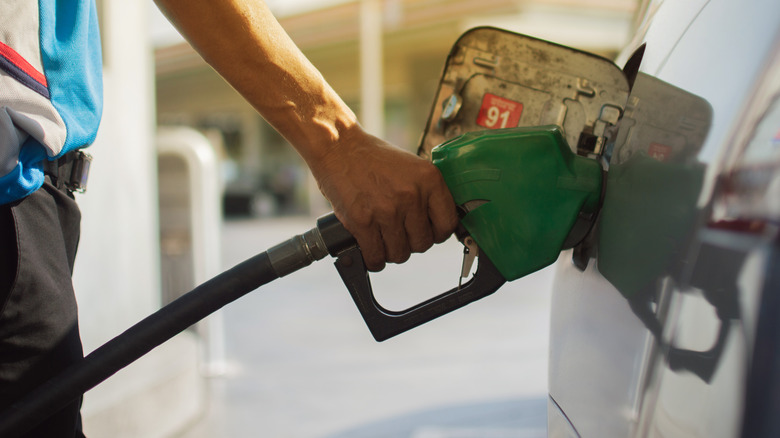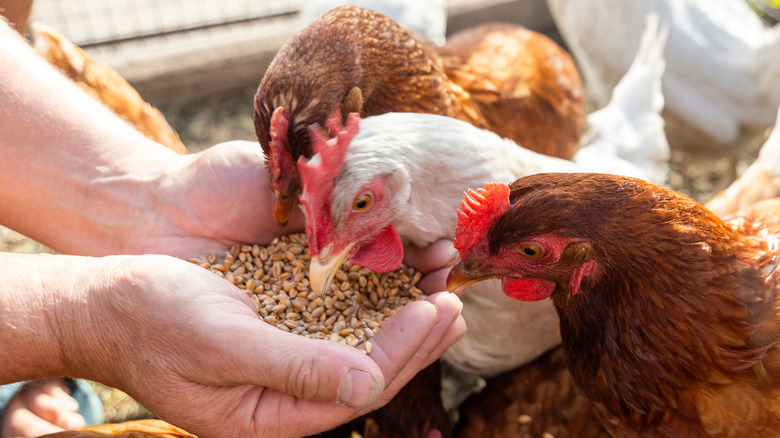Why This Plan To Lower Gas Prices Could Be Bad For Chicken Farmers
Isaac Newton's third law — "for every action, there is an equal and opposite reaction" — may mostly apply to the study of physics, but we can see how there might be some real-world applications. The U.S. government's plans to make use of biofuels to cut summer gasoline costs may be one of them. The rise in gas prices has affected Krispy Kreme's new donut deal, grocery store prices, and airline tickets, adding to the thinning wallets of Americans in many ways (via The Washington Post).
Many celebrated when President Joe Biden announced his plans to allow the use of biofuel blends to help power vehicles over the upcoming summer. The blend, which is made up of 85% gasoline and 15% ethanol, is known as E15 and while more of it is needed to power a car, it's also cheaper. In reporting the development, several media outlets, including Reuters, point out how it will make a difference to a car owner's gasoline cost. E15 will be made available from June 1 to September 15, a time when many would be hitting the road, traveling to destinations that promise summer fun.
The use of E15 would do two things, make gas cheaper and, possibly, curb America's dependence on foreign oil. But using E15 could have a potential downside — and this is where the opposite reaction comes in.
The promise of higher corn demand is worrying poultry and livestock farmers
While the increased use of E15 is being celebrated as a win for the corn industry, there is one industry that doesn't see it that way. As The Wall Street Journal points out, the National Chicken Council is already concerned about what an increase in demand for corn might do to grain prices, especially since most chicken feed is made from corn. Furthermore, will this demand create more of a shortage in food products through the remainder of 2022?
Council president Mike Brown said "Further and artificial demand for corn created by this administration will likely increase the cost of corn and all food products dependent on corn and corn oil inputs. At the end of the day—ethanol manufacturers win and consumers lose." The higher the grain prices, the more money farmers will spend on feed, and this can ultimately lead to an increase in the price of meat.
There are also concerns that E15 will contribute to higher smog levels in the summer, although Reuters has said research is unclear that this would be the case. But commodities analysts say people who worry about the impact of the decision to use more ethanol may be thinking too far ahead, simply because using E15 is a short-term fix. Analyst Ben Bienvenu told The Wall Street Journal "It is tough to make a fundamental call on how meaningful the impact could be to higher corn, food prices."

